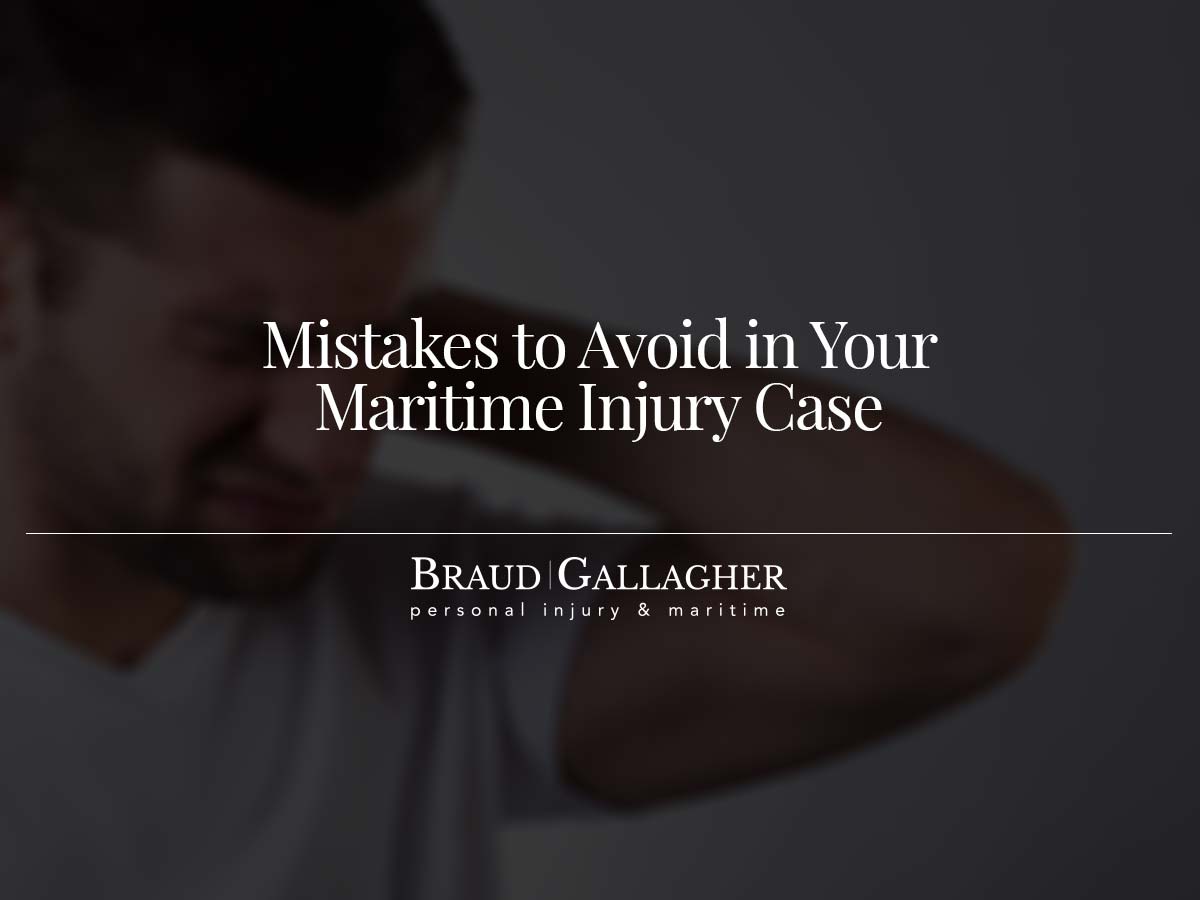If you work on or around the waters of New Orleans, you may be considered a maritime employee. Understanding your maritime employee status will be critical if you are seriously injured at work and will need medical attention of any kind.
Filing a maritime injury claim can be even more complex than a typical personal injury claim, as there are multiple types of maritime employees, each with their own types of benefits. Below, we have described two of the most common mistakes you should avoid when filing your maritime injury case.
1. Filing the Wrong Type of Injury Claim
Due to the fact that there are different types of maritime employees and acts under which you can obtain financial support following a work injury, we often find that injured maritime workers will file a claim under the wrong act. If you want to ensure that you don’t make this mistake, you need to understand which type of maritime employee you are and which act you should file a claim under.
Maritime employees are broken up into two categories: seamen and other maritime employees, like harbor workers, shipyard workers, longshoremen, and those who work on oil rigs. Injured seamen are protected by the Jones Act, while other maritime employees can collect benefits under the Longshore and Harbor Workers’ Compensation Act (LHWCA).
It is often easier to obtain benefits under the Jones Act, as the burden of proof essentially states that if a ship is deemed unseaworthy as a result of an injury, the injured seaman will be entitled to benefits. LHWCA benefits are similar to workers compensation benefits, except only maritime employees can obtain benefits under this act.
2. Misunderstanding Your Benefits as a Maritime Worker
The other mistake that is commonly made is for the injured maritime employee to misunderstand what benefits they are entitled to, which makes sense, since many claimants make the mistake of filing a claim under the wrong act for their maritime injuries.
Jones Act recipients are entitled to all of the same types of losses that someone filing a personal injury claim would potentially be able to recover, such as pain and suffering, diminished quality of life, and lost income, to name a few.
In addition to these losses, injured seamen are also entitled to what is known as maintenance and cure. Cure refers to the complete coverage of your injury-related medical expenses, and maintenance consists of your living expenses, including rent or mortgage payments, groceries, and utilities, among other costs.
This is different from benefits under the LHWCA, which consist of full coverage of your medical expenses, a disability benefit amounting to approximately 66 percent of your average weekly wages, and job training if your condition will prevent you from continuing to work as a maritime employee.
Reach Out to a New Orleans Maritime Injury Lawyer
Federal maritime laws are complex, and when you have questions about how you can obtain benefits for your work injury, a New Orleans maritime lawyer may be able to help. To schedule your free consultation at the Law Office of Braud & Gallagher, simply give our firm a call at 1-800-256-5674 or fill out our contact form on the bottom of this page.
